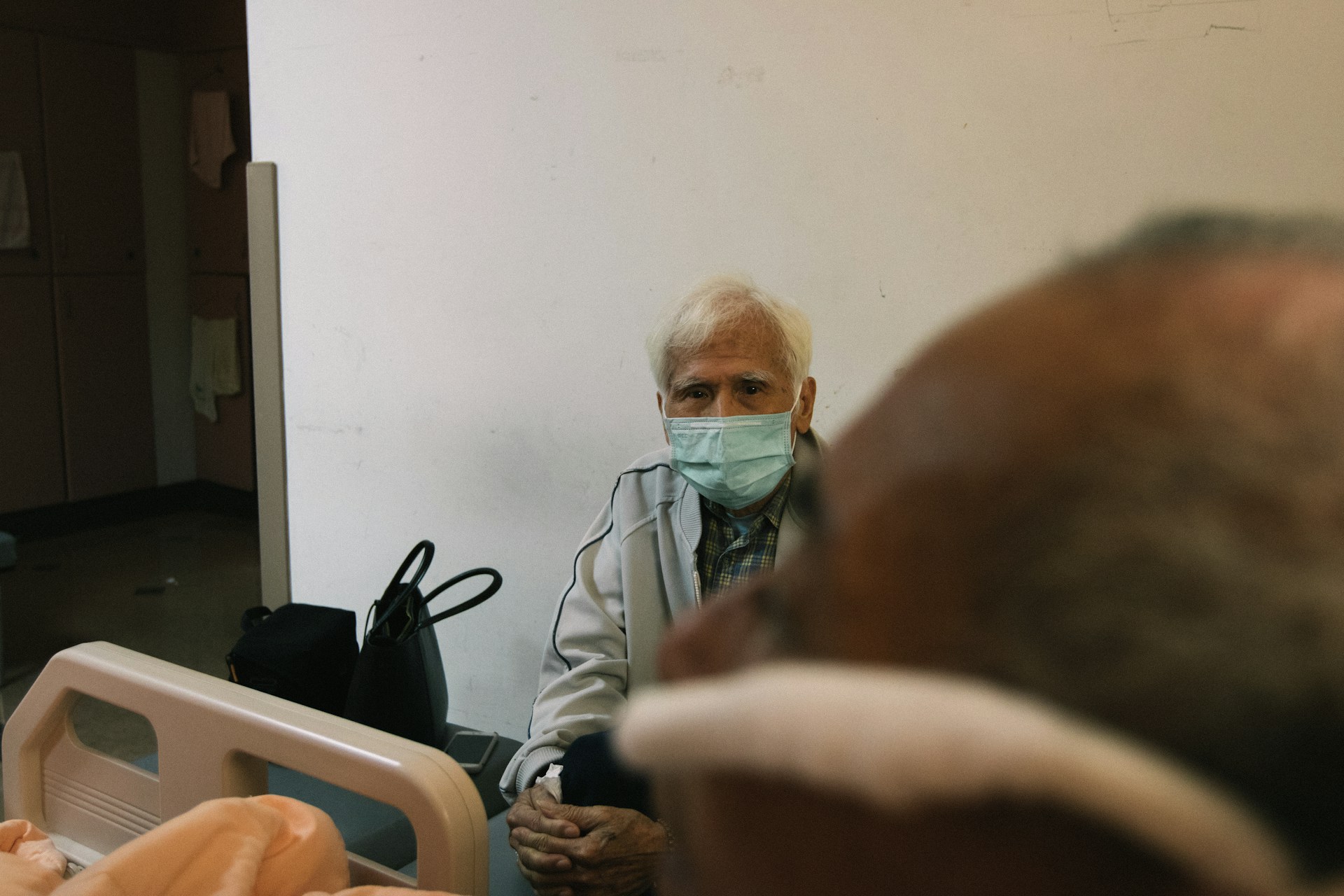Breakfast Practices Among Indonesian Adults: Urban and Rural Differences and Its Associated Factors
Praktik Sarapan pada Orang Dewasa Indonesia: Perbedaan Perkotaan dan Pedesaan dan Faktor yang Berkaitan

Downloads
Backgrounds: Adults in Indonesia have challenges due to the high prevalence of obesity. Factors that contributed to obesity included unhealthy eating practices. Skipping breakfast habits are linked to health issues such as non-communicable diseases (NCDs). Breakfast practices also reflected the social and cultural dynamics in urban and rural. Socioeconomic and demographic factors could cause differences in breakfast practices between urban and rural areas in Indonesia.
Objectives: This research aimed to examine the differences in breakfast practices among Indonesian adults in urban and rural areas based on various characteristics and to explore the association between socioeconomic and demographic characteristics with breakfast practices.
Methods: This was a cross-sectional study using secondary data from the Indonesia Food Barometer (IFB) in 2018. A total of 770 adults (26–45 years old) were examined to observe the differences in breakfast practices (skipping breakfast, eating together, buying food, cooking food, and activities during meals) in urban and rural areas. Logistic regression analysis was also employed to examine the association between skipping breakfast and modern breakfast practices with socioeconomic and demographic variables.
Results: Chi-square analysis showed significant differences between urban and rural areas in eating alone, eating outside the home, and buying food during breakfast (p-value <0.001). Factors related to skipping breakfast were education level and type of residence (all p-value <0.001), while occupation (p-value = 0.004) and type of residence (p-value <0.001) were related to modern breakfast practices.
Conclusions: There were differences in breakfast practices between urban and rural. Skipping breakfast and modern breakfast practices were more prevalent in urban areas.
INTRODUCTION
Indonesia faced a demographic bonus in 2030, where most of the population consisted of working-age adults. This phenomenon also indicated that the population will begin ageing by 2040, as the elderly population has a higher health risk and vulnerability1. One health issue in Indonesia was obesity caused by overnutrition. Overnutrition could have led to the loss of Disability-Adjusted Life Years (DALYs) among working-age adults, contributing to Non-Communicable Diseases (NCDs). The 2018 Indonesian Basic Health Research(Riset Kesehatan Dasar/Riskesdas)revealed a progressive rise in the prevalence of overweight among adults, increasing from 11.5% in 2013 and reaching 13.6% in 20182. A comparable trend was observed in the prevalence of obesity, with urban areas exhibiting a higher prevalence compared to rural areas2. Furthermore, the implications of adults burdened with obesity led to work limitations, particularly in physically demanding occupations. Reduced mobility and physical endurance hindered employees' abilities to perform certain tasks, necessitating adjustments to job roles or accommodations3. The implications mentioned were caused by poor diet among adults4;5.
The Global Burden of Diseases Study confirmed the role of poor eating habits as a risk for DALY loss4. Various factors have influenced poor eating, such as sociodemographic-economic conditions and eating practices, especially breakfast-related practices5. Breakfast consumption has been significantly associated with diet quality and NCDs6;7;8. Breakfast had been considered a crucial daily meal, breaking the longest fasting period after a meal, especially the overnight fasting period6. One lesson from the Balanced Nutrition Guidelines (PGS) was that breakfast was an essential habit for maintaining health9. Eating practices, including social and cultural factors like eating with a companion, skipping meals, buying food, and eating outside, had significantly impacted food intake10. The importance of breakfast practices was nutritionally linked to diet quality11.
Another factor contributing to breakfast practices in society was the distinction between urban and rural areas12;13. A high population density and infrastructure development typically characterize urban areas. These areas often have advanced amenities, such as paved roads, public transportation, and various commercial, cultural, and recreational facilities. Urban might have diverse populations and are often marked by a more modern and cosmopolitan lifestyle. While for rural areas, on the other hand, are characterized by a lower population density and are often situated away from major cities or urban centers. These areas may have less developed infrastructure and fewer amenities13;14. Urban and rural were some of the most significant forces influencing food practices and nutritional changes13;15. Higher urbanization affected food consumption and nutrition changes, impacting consumption habits and practices. Urban areas affected agricultural land, food availability and costs, and the overall environment where food was produced16. Previous19studies on eating practices in urban and rural areas in East Java, Indonesia, showed that urban adults are more likely to skip breakfast and have lower diet quality scores than rural areas17. Breakfast practices were of consuming morning meals, encompassing the evolving nature of these routines in contemporary societies6;7. The social and physical environment shapes behaviors such as eating out and consuming food prepared away from home, contributing to health and well-being. In Malaysia, the proportion of the 'eating out' phenomenon was positively correlated with modernization18;19. The previous framework demonstrated the concept of traditional and modern eating practices. People living in urban areas adopted more modern diets than those in rural areas20.
The term of "modern breakfast practices" referred to a diverse array of dietary behaviors influenced by modernization that had an important role similar to traditional norms. These practices might involve changes in food choices, preparation methods, and the overall cultural context of breakfast21. A study conducted by Sproesser et al20explaining the term modern eating practices was not only about what people ate but also how people ate. More modern eating can be explained by being more likely to have such eating practices: eating alone, buying food, eating outside, and also screen time or doing other activities during eating. Uncovering the factors influencing modern breakfast practices was crucial for gaining insights into the shifting landscape of dietary habits, especially within sociodemographic characteristics20. This research sought to bridge this gap by delving into the intricate relationships between socio- demographic and economic characteristics and the adoption of modern breakfast practices. Modern breakfast practices might result in a higher likelihood of eating alone, eating outside the home, buying food, and eating with screen time18;22.
The findings of this study were intriguing, prompting an examination and emphasis on other eating habits during breakfast to determine whether urban and rural areas yielded different results. In conclusion, this research endeavored to unravel the interplay between sociodemographic characteristics and breakfast-eating practices in Indonesian various characteristics, who live in urban and rural. By elucidating these connections, the study aimed to contribute valuable insights for government, health professionals, and individuals striving to promote healthier dietary habits during breakfast.
METHODS
The data used for this quantitative analysis was derived from the Indonesia Food Barometer (IFB) 2018. The IFB 2018 study was conducted with a cross-sectional study design, employing a mixed-model approach that relied on both qualitative instruments (such as one-on-
Gani, A. & Budiharsana, M. P. The Consolidated Report on Indonesia Health Sector Review 2018. Ministry of National Development Planning of the Republic of Indonesia 56 (2019).
Kemenkes RI. Laporan Riskesdas 2018 Kementrian Kesehatan Republik Indonesia. Laporan Nasional Riskesdas 2018 vol. 53 154–165 Preprint at http://www.yankes.kemkes.go.id/assets/downloads/PMK No. 57 Tahun 2013 tentang PTRM.pdf (2018).
Fanelli, S. M. et al. Poorer Diet Quality Observed Among US Adults With a Greater Number of Clinical Chronic Disease Risk Factors. J Prim Care Community Health 11, (2020).
Lim, S. S. et al. A comparative risk assessment of burden of disease and injury attributable to 67 risk factors and risk factor clusters in 21 regions, 1990-2010: A systematic analysis for the Global Burden of Disease Study 2010. The Lancet 380, 2224–2260 (2012).
Martinez-Lacoba, R., Pardo-Garcia, I., Amo-Saus, E. & Escribano-Sotos, F. Socioeconomic, demographic and lifestyle-related factors associated with unhealthy diet: A cross-sectional study of university students. BMC Public Health 18, 1–10 (2018).
Gibney, M. J. et al. Breakfast in human nutrition: The international breakfast research initiative. Nutrients 10, 1–12 (2018).
O’Neil, C. E. et al. The role of breakfast in health: Definition and criteria for a quality breakfast. J Acad Nutr Diet 114, S8–S26 (2014).
Azadbakht, L., Haghighatdoost, F., Feizi, A. & Esmaillzadeh, A. Breakfast eating pattern and its association with dietary quality indices and anthropometric measurements in young women in Isfahan. Nutrition 29, 420–425 (2013).
Kementrian Kesehatan Republik Indonesia. Pedoman Gizi Seimbang. (2014).
Holm, L., Lund, T. B. & Niva, M. Eating practices and diet quality: A population study of four Nordic countries. Eur J Clin Nutr 69, 791–798 (2015).
Gorgulho, B. M., Fisberg, R. M. & Marchioni, D. M. L. Nutritional quality of major meals consumed away from home in Brazil and its association with the overall diet quality. Prev Med (Baltim) 57, 98–101 (2013).
Martin, J. C. et al. Exploring diet quality between urban and rural dwelling women of reproductive age. Nutrients 9, 1–14 (2017).
Cockx L, Colen L, De Weerdt J, G. Y. P. S. Urbanization as a Driver of Changing Food Demand in Africa: Evidence from Rural-Urban Migration in Tanzania. JRC Technical Report (2019). doi:doi:10.2760/515064.
Nelson, K. S. et al. Definitions, measures, and uses of rurality: A systematic review of the empirical and quantitative literature. J Rural Stud 82, 351–365 (2021).
Bricas, N. Urbanization Issues Affecting Food System Sustainability. 1–25 (2019) doi:10.1007/978-3-030-13958-2_1.
Zhai, F. Y. et al. Dynamics of the Chinese diet and the role of urbanicity, 1991-2011. Obesity Reviews 15, 16–26 (2014).
Sartika AN. Association of eating behavior and diet quality among adults living in urban and rural area of East Java . (Universitas Indonesia, 2018).
Poulain, J. P. et al. Malaysian Food Barometer (MFB): A study of the impact of compressed modernisation on food habits. Malays J Nutr 26, 1–17 (2020).
Poulain, J. P., Laporte, C. & Tibere, L. Studying the Consequences of Modernization on Ethnic Food Patterns: Development of the Malaysian Food Barometer (MFB). https://www.researchgate.net/publication/275713460.
Sproesser, G. et al. Understanding traditional and modern eating: The TEP10 framework. BMC Public Health vol. 19 Preprint at https://doi.org/10.1186/s12889-019-7844-4 (2019).
Sproesser, G. et al. What constitutes traditional and modern eating? The case of Japan. Nutrients 10, (2018).
Khusun, H. et al. Indonesian Barometer FOOD Food, Cultures, and Health.
Poulain, J. P. et al. The Malaysian Food Barometer Open Database: An Invitation to Study the Modernization of Malaysian Food Patterns and Its Economic and Health Consequences. Front Nutr 8, 1–7 (2022).
Khusun, H. et al. Diversity of protein food sources, protein adequacy and amino acid profiles in Indonesia diets: Socio-Cultural Research in Protein Transition (SCRiPT). J Nutr Sci 11, e84 (2022).
Khusun, H. et al. Animal and Plant Protein Food Sources in Indonesia Differ Across Socio-Demographic Groups: Socio-Cultural Research in Protein Transition in Indonesia and Malaysia. Front Nutr 9, 1–8 (2022).
Sastroasmoro, S. Perkiraan Besar Sampel dalam Penelitian Klinis. Dasar-dasar Metodologi Penelitian 359 (2011).
Anríquez, G. & Stamoulis, K. Rural Development and Poverty Reduction: Is Agriculture Still the Key? www.fao.org/es/esa (2007).
Pender, J., Marré, A. & Reeder, R. United States Department of Agriculture Economic Research Service Rural Wealth Creation Concepts, Strategies, and Measures Economic Research Report Number 131. http://www.ers.usda.gov (2012).
BPS. Statistik Indonesia. https://www.bps.go.id/id/statistics-table?subject=519# (2018).
Hamrick, K. S. & Mcclelland, K. Americans’ Eating Patterns and Time Spent on Food : The 2014 Eating & Health Module Data. 2 (2016).
Goon, S. Breakfast Skipping and Obesity Risk among Urban Adults in Bangladesh. International Journal of Public Health Science (IJPHS) 3, 15–22 (2014).
Kushida, O., Moon, J. S., Matsumoto, D., Yamasaki, N. & Takatori, K. Eating alone at each meal and associated health status among community-dwelling japanese elderly living with others: A cross-sectional analysis of the kaguya study. Nutrients 12, 1–11 (2020).
Chae, W., Ju, Y. J., Shin, J., Jang, S. I. & Park, E. C. Association between eating behaviour and diet quality: Eating alone vs. eating with others. Nutr J 17, 1–11 (2018).
Takeda, W. & Melby, M. K. Spatial, temporal, and health associations of eating alone: A cross-cultural analysis of young adults in urban Australia and Japan. Appetite 118, 149–160 (2017).
Clohessy, S., Walasek, L. & Meyer, C. Factors influencing employees’ eating behaviours in the office-based workplace: A systematic review. Obesity Reviews 20, 1771–1780 (2019).
Taillie, L. S. Who’s cooking? Trends in US home food preparation by jenis kelamin, education, and race/ethnicity from 2003 to 2016. Nutr J 17, 1–9 (2018).
Lee, C.-S., Chen, Y.-C., Tsui, P.-L., Che, C.-W. & Chiang, M.-C. New Rural Women’s Power: Sustainable Rural Food Preparation Model Inheritance and Business Model. in 42 (MDPI AG, 2022). doi:10.3390/foods2021-11031.
La Marra, M., Caviglia, G. & Perrella, R. Using Smartphones When Eating Increases Caloric Intake in Young People: An Overview of the Literature. Frontiers in Psychology vol. 11 Preprint at https://doi.org/10.3389/fpsyg.2020.587886 (2020).
Khusun, H. et al. Breakfast Consumption and Quality of Macro- and Micronutrient Intake in Indonesia: A Study from the Indonesian Food Barometer. Nutrients 15, (2023).
Universitas Indonesia Association of Eating Behavior And Diet Quality Among Adults Living In Urban And Rural Area Of East Java Thesis Arindah Nur Sartika 1606839952 Faculty Of Medicine Nutritional Sciences Study Program Jakarta 2018.
Seedat, R. & Pillay, K. Breakfast consumption and its relationship to sociodemographic and lifestyle factors of undergraduate students in the School of Health Sciences at the University of KwaZulu-Natal. South African Journal of Clinical Nutrition 33, 79–85 (2020).
Taillie, L. S. Who’s cooking? Trends in US home food preparation by jenis kelamin, education, and race/ethnicity from 2003 to 2016. Nutr J 17, (2018).
Tiwari, A., Aggarwal, A., Tang, W. & Drewnowski, A. Cooking at Home: A Strategy to Comply With U.S. Dietary Guidelines at No Extra Cost. Am J Prev Med 52, 616–624 (2017).
Mills, S., Adams, J., Wrieden, W., White, M. & Brown, H. Sociodemographic characteristics and frequency of consuming home-cooked meals and meals from out-of-home sources: Cross-sectional analysis of a population-based cohort study. Proceedings of the International Astronomical Union 21, 2255–2266 (2018).
Martin, J. C. et al. Exploring diet quality between urban and rural dwelling women of reproductive age. Nutrients 9, 1–14 (2017).
Azizi Fard, N., De Francisci Morales, G., Mejova, Y. & Schifanella, R. On the interplay between educational attainment and nutrition: a spatially-aware perspective. EPJ Data Sci 10, (2021).
Hawkes, C. Dietary implications of supermarket development: A global perspective. Development Policy Review 26, 657–692 (2008).
Nabdi, S., Boujraf, S. & Benzagmout, M. Evaluation of rural-urban patterns in dietary intake: A descriptive analytical study – Case series. Annals of Medicine and Surgery 84, 104972 (2022).
Copyright (c) 2024 Amerta Nutrition

This work is licensed under a Creative Commons Attribution-ShareAlike 4.0 International License.
AMERTA NUTR by Unair is licensed under a Creative Commons Attribution-ShareAlike 4.0 International License.
1. The journal allows the author to hold the copyright of the article without restrictions.
2. The journal allows the author(s) to retain publishing rights without restrictions
3. The legal formal aspect of journal publication accessibility refers to Creative Commons Attribution Share-Alike (CC BY-SA).
4. The Creative Commons Attribution Share-Alike (CC BY-SA) license allows re-distribution and re-use of a licensed work on the conditions that the creator is appropriately credited and that any derivative work is made available under "the same, similar or a compatible license”. Other than the conditions mentioned above, the editorial board is not responsible for copyright violation.












































